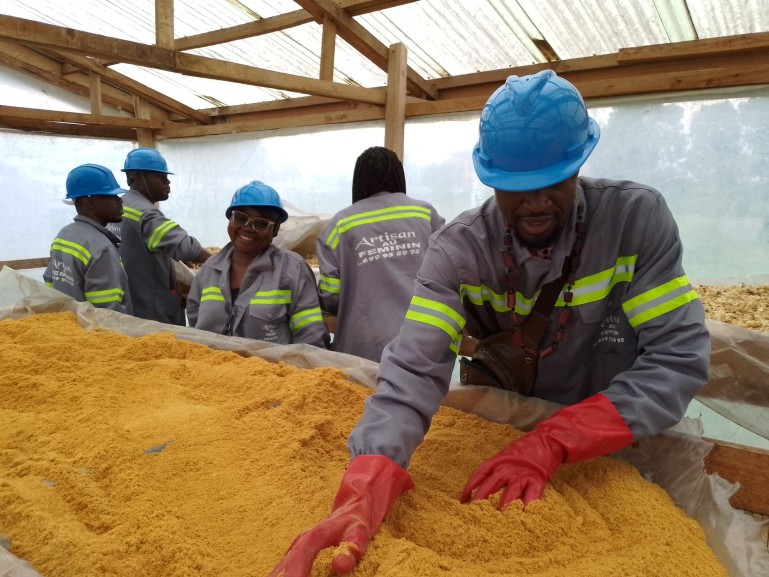

20.06.2025
As part of its ongoing efforts to promote a sustainable and inclusive forest-wood sector in Central Africa, the ADEFAC program (Support for the Development of Continuing Training in the Forest-Wood Sector in Central Africa) recently supported a pioneering training session in Ebolowa, in southern Cameroon. The focus: turning wood residues and household waste into biochar.

Organized by the Association Artisans au Féminin, the training aimed to empower local women by teaching them how to build artisanal pyrolysis units and produce biochar from discarded materials. This ecological charcoal, which releases far less CO₂ than traditional charcoal, can be used as fertilizer, a filter, or even as an energy source — all while generating income and reducing environmental degradation in surrounding communities.
The association's president, Hélène Mapoko Engohe, emphasized the importance of providing women with professional opportunities in the forest-wood sector. With support from ADEFAC, her organization opened within her vocational training center a specific continuing training program in the region to help address unemployment and poverty through income-generating activities. The initiative also includes men and vulnerable youth, promoting broader social inclusion.
Among the participants was Flore Akono, a forest operator and farmer, who praised the training for showing her how to turn wood and agricultural waste into a biological fertilizer:
“Thanks to ADEFAC, we’ve learned to process waste into biochar — a sustainable alternative to chemical fertilizers. It’s economical and environmentally friendly. This is a solution for the future!”
The impact is substantial: whereas only 30% of these materials were previously reused, participants now aim to valorize up to 90% of their household and forest waste. The training supports the creation of a local circular economy while aligning with ADEFAC’s broader objectives — professionalization, sustainability, and social equity in the forest sector.